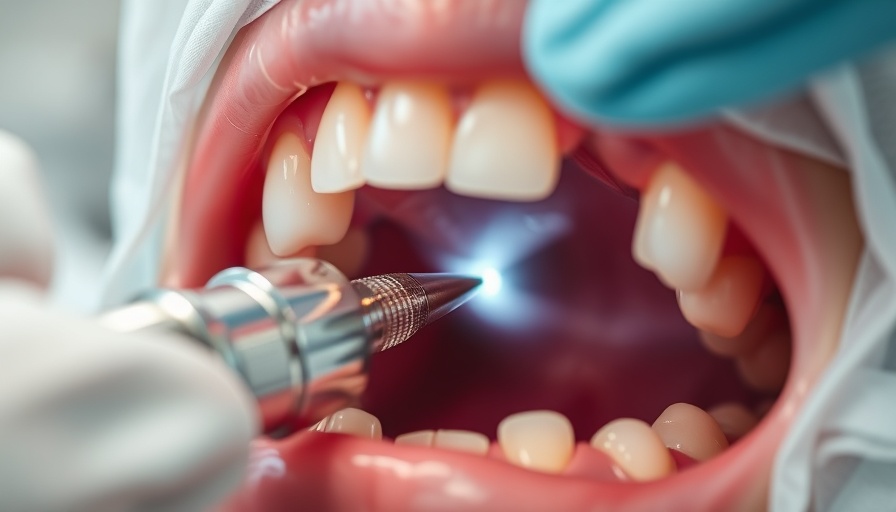
Revolutionizing Dental Care: The Role of Laser Treatments
In the realm of dentistry, the emergence of laser technology is reshaping the way dental professionals approach treatments, particularly for cases of pulpal exposure. This condition often necessitates endodontic treatment, commonly known as a root canal, when bacteria infect the pulp of the tooth due to carious lesions. However, advancements in laser treatments are providing a promising alternative that could significantly reduce the need for such invasive procedures.
What is Pulpal Exposure?
Pulpal exposure occurs frequently during the treatment of carious teeth, putting the vitality of the tooth at serious risk. If the exposed pulp remains vital and there is no periapical radiolucency present, laser treatment offers an innovative solution. By utilizing an Nd:YAG laser, dentists can effectively eliminate harmful bacteria at the exposure site, potentially preventing further infection and extending the life of the tooth.
Benefits of Laser Treatment in Dentistry
Laser technology has increasingly made its mark in endodontics. Studies suggest that when a laser is applied to treat pulpal exposures, it helps in managing inflammation and promoting healing. The precise nature of lasers facilitates excellent decontamination, and their ability to induce tertiary dentine formation enhances the sealing of the exposed pulp. Post-laser treatment, dentists typically reinforce the area with restorative materials such as mineral trioxide aggregate (MTA) or Biodentine, which have shown superior long-term outcomes compared to traditional agents like calcium hydroxide.
Addressing Bacterial Infection Directly
The primary goal in managing pulpal exposure is to address the bacterial infection effectively. Lasers, known for their disinfecting properties, are pivotal in creating a sterile environment at the site of exposure. This helps in mitigating the risk of subsequent pulpal pathologies. By ensuring that bacteria are targeted and eliminated, dentists can improve the success rate of direct pulp capping procedures, a technique designed to preserve tooth vitality.
Evidence Supporting Laser Efficacy in Pulp Therapy
Recent systematic reviews highlight that the integration of lasers in pulp capping protocols results in a significantly higher rate of maintaining pulp vitality compared to conventional approaches alone. More than two-thirds of studies within the review affirmed that laser therapy not only accelerates healing but also enhances the formation of a robust dentine bridge, which is crucial for sealing exposes pulp effectively.
What You Should Know as a Patient
If you’re considering dental procedures involving treatments for pulpal exposure, it’s worth discussing the potential of laser treatments with your dentist. Technologies such as laser dentistry offer a less invasive approach that may reduce your anxiety about dental work and lead to quicker recovery times. Investigate options near you, such as a dentist near you specializing in innovative techniques like this.
Future Directions in Dental Practices
As laser technology continues to evolve, we can expect further advancements in its application within endodontics and other branches of dentistry. Private practices may begin adopting these methods more widely, improving overall patient experience by reducing treatment times and increasing comfort levels during procedures. Patients should stay informed about new dental innovations, including emergency dentist options that offer cutting-edge technologies for urgent dental needs.
In conclusion, the integration of laser technology into standard dental practice not only enhances treatment outcomes but also signifies a shift towards more patient-centered care. As dental professionals become more adept at employing these techniques, the holistic approach to dental health will continue to flourish, and the risk of invasive procedures like root canals may diminish.
If you're interested in exploring laser treatment options for dental issues or are ready to schedule your dental appointment, don’t hesitate to reach out to your local dental clinic that offers these advanced services!
 Add Row
Add Row  Add
Add 




 Add Row
Add Row  Add
Add 

Write A Comment